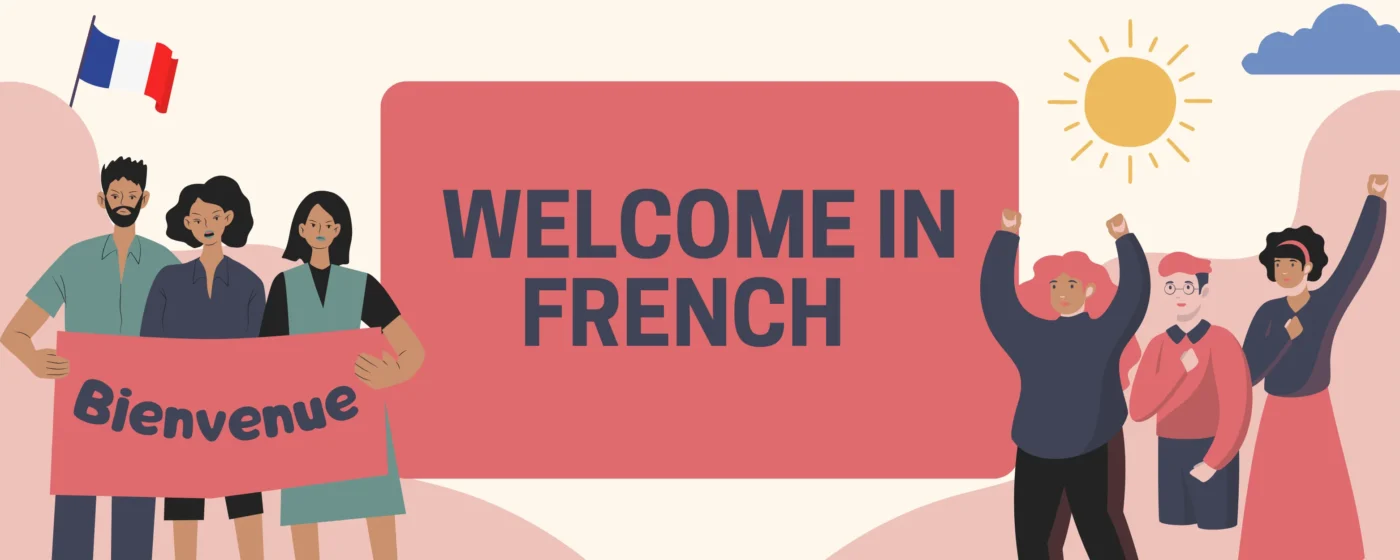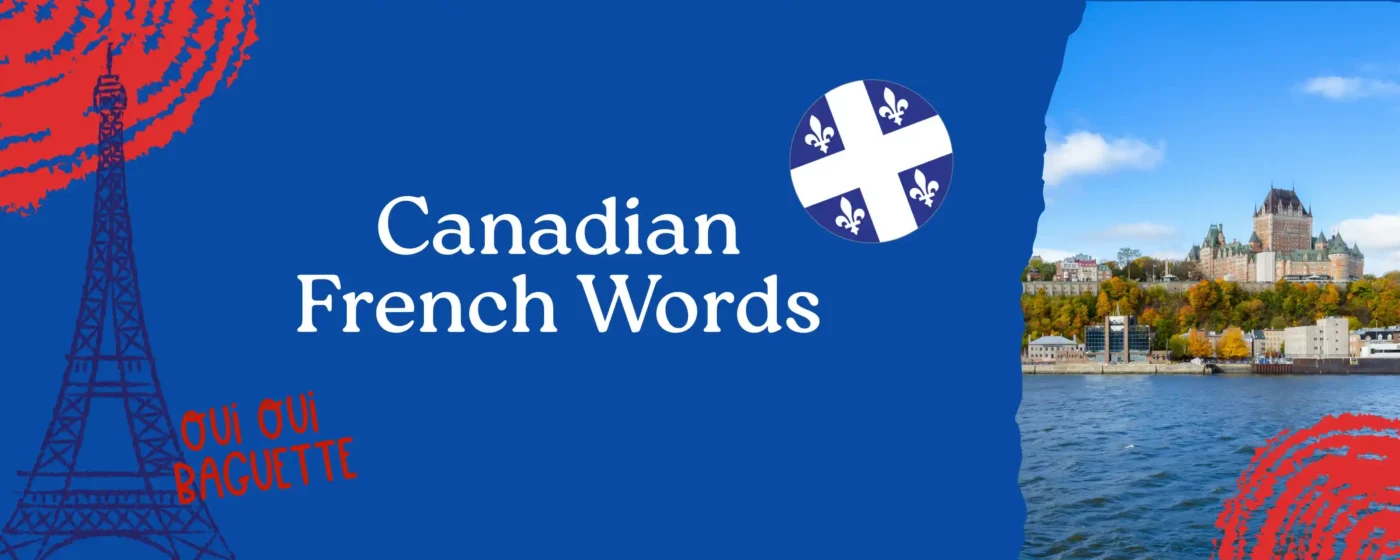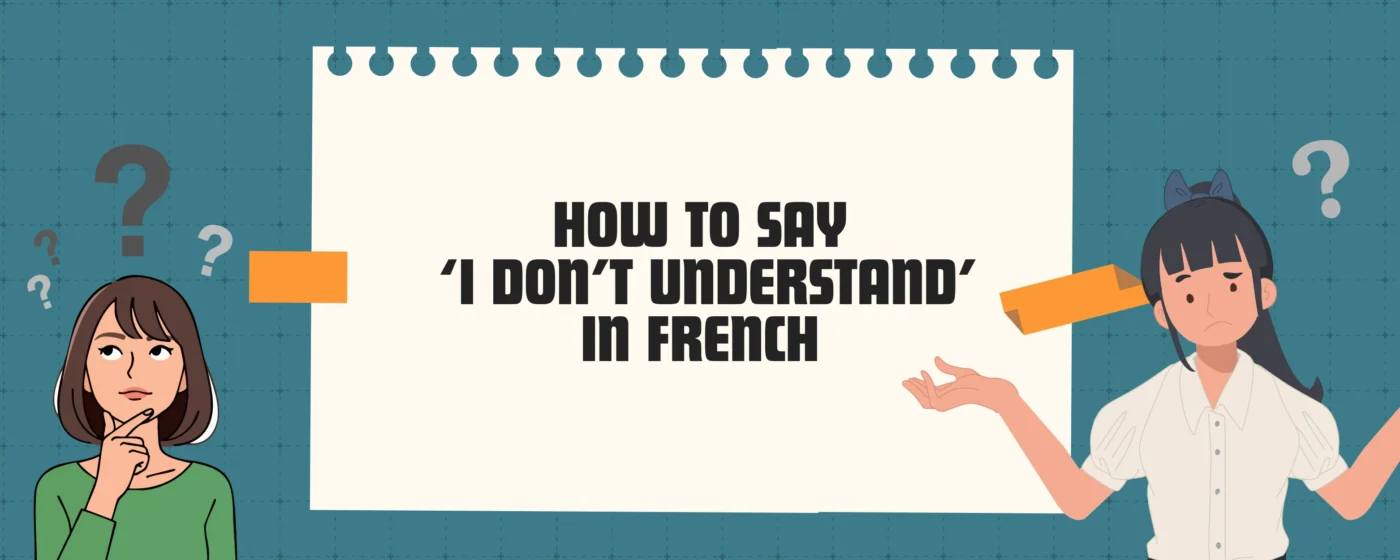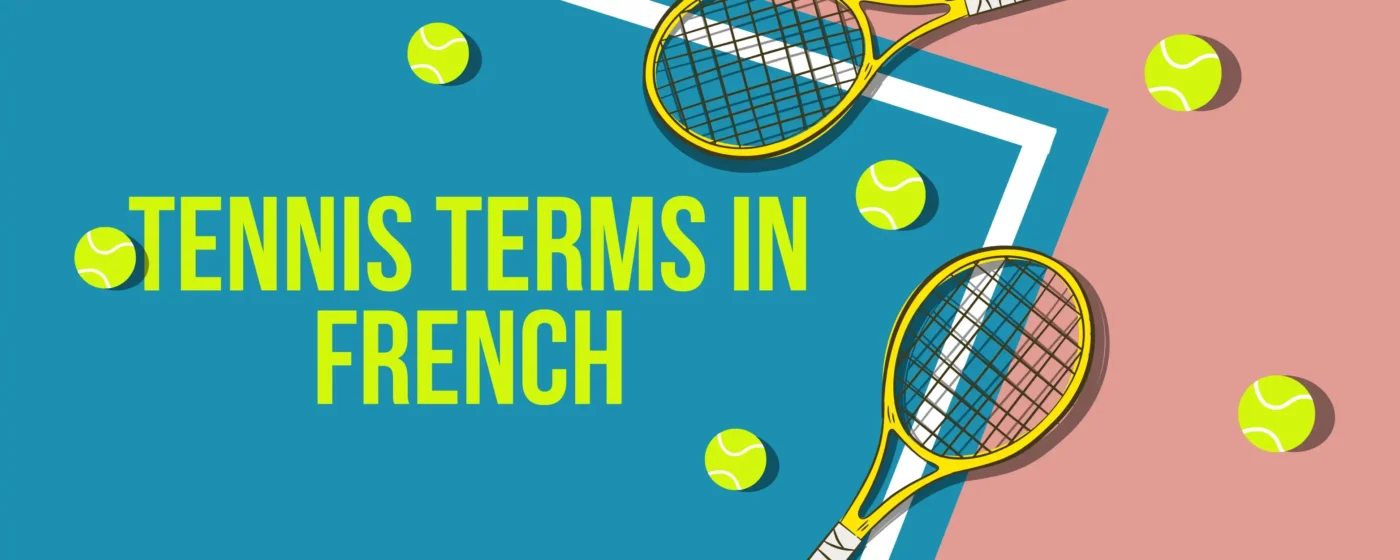13 Ways to Say “Welcome in French” with Pronunciation Guide

Politeness opens doors in French! Saying “You’re welcome” in French isn’t a ‘one-size-fits-all’ situation, mastering different unique phrases and expressions is crucial to expanding your vocabulary. Learning these nuances will greatly improve your conversational fluency as well as help you navigate interactions smoothly and sound more like a native speaker. Let’s delve into this plethora of expressions. Allez-y!
Key Takeaways
- Learn “Welcome” words and know how you can use them to say Welcome word in the French language also enhance your fluency in the French language with its punctuation.
- Know about the word like Je vous en prie (formal) or Avec plaisir nail polite responses such as “you’re welcome” in pro or respectful chats.
- You can express a welcome word as Heartfelt vibes with Tout le plaisir est pour moi (pleasure’s mine) or Ça me fait plaisir (it makes me happy).
- Learn Fun quirks of the welcome word, such as Y’a pas de lézard (no lizard = no worries), Belgian S’il vous plaît, or Bienvenue in Canada.
- Know the Formal service words of “welcome” like À votre service (at your service), and match formality to keep French conversations smooth and natural!
Je vous en prie
Pronunciation: zhuh voo zahn pree
Translation: You’re welcome (formal)
A formal and very polite way to say “You’re welcome”. It is used in professional settings or when addressing someone with respect, and is especially appropriate in a formal situation, showing that the action or favour was a pleasure or duty, emphasising politeness.
Example: Merci beaucoup pour votre aide. – Je vous en prie.
(Thank you very much for your help. – You’re welcome.)
Avec plaisir
Pronunciation: ah-vec pleh-seer
Translation: With pleasure
This conveys both enthusiasm and formality. It means “with pleasure”, indicating genuine willingness to help while maintaining a polite and somewhat formal tone.
Example: Merci de m’avoir accompagné. – Avec plaisir !
(Thanks for accompanying me. – With pleasure!)
De rien
Pronunciation: duh ree-ahn
Translation: You’re welcome / No problem
This is the most common and informal way to say “you’re welcome”. It is one of the simplest ways to say you’re welcome in French. It minimises the significance of the favour done, suggesting it was no trouble at all.
Example: Merci pour le café. – De rien.
(Thanks for the coffee. – You’re welcome.)
Pas de problème
Pronunciation: pah duh proh-blem
Translation: No problem
This phrase has a relaxed and casual tone. It assures the other person that their request or favour didn’t cause any difficulty or inconvenience.
Example: Désolé d’être en retard. – Pas de problème.
(Sorry for being late. – No problem.)
Celebrate success the French way! Learn the Top 7 ways to say congratulations in French with this helpful guide.
C’est rien
Pronunciation: say ree-ahn
Translation: It’s nothing / No big deal
Similar to “De rien”, it’s used in informal contexts to downplay the importance of the favour, suggesting it was minimal effort.
Example: Merci de m’avoir prêté ton stylo. – C’est rien!
(Thanks for lending me your pen. – It’s nothing!)
Il n’y a pas de quoi
Pronunciation: eel nee ah pah duh kwah
Translation: There’s no reason for it / You’re welcome
This has a modest tone, suggesting the favour was so small that thanks aren’t necessary. It’s polite and slightly more formal than “De rien”.
Expressions starting with ‘il n’y’, ‘il n’y a pas’, and ‘n’y a pas de’ are common in French for conveying reassurance or politeness. Phrases like ‘il n’y a pas de souci’ or ‘il n’y a pas de problème’ are often used in informal exchanges to indicate that there’s no problem or no need for thanks.
Example: Merci pour le coup de main. – Il n’y a pas de quoi.
(Thanks for the helping hand. – You’re welcome.)
Tout le plaisir est pour moi
Pronunciation: too luh pleh-zeer ay poor mwah
Translation: The pleasure is all mine
A sophisticated way to say “you’re welcome”, implying that the speaker received more pleasure from helping than the other person did from receiving it.
Example: Je suis très reconnaissant pour votre aide. – Tout le plaisir est pour moi.
(I’m very grateful for your help. – All the pleasure is mine.)
Pas de souci
Pronunciation: pah duh soo-see
Translation: No worries
A relaxed, informal response to thanks or an apology, indicating that everything is fine and no gratitude is necessary.
Example: Je peux t’aider demain ? – Oui, pas de souci.
(Can I help you tomorrow? – Yes, no worries.)
Ça me fait plaisir
Pronunciation: sah muh fay pleh-zeer
Translation: It gives me pleasure
Used to express sincere joy or satisfaction from helping someone. A personal and warm way to say “you’re welcome”.
Example: Merci pour ce beau cadeau. – Ça me fait plaisir que ça te plaise.
(Thanks for this lovely gift. – It makes me happy that you like it.)
Lost for Words? We’ve Got You!
Sign up for our courses and let our expert teachers boost your vocabulary effortlessly!
Y’a pas de lézard
Pronunciation: yah pah duh lay-zar
Translation: No worries
A quirky, informal French idiom. Literally “there’s no lizard,” it means there’s no issue—everything’s fine.
Example: On se voit à quelle heure ? – 18h, y’a pas de lézard ?
(What time shall we meet? – 6 PM, is that okay?)
S’il vous plaît
Pronunciation: seel-voo pleh
Translation: You’re welcome (in Belgian French)
Though typically used to mean “please”, in Belgian French it can also mean “you’re welcome”.
Example: Merci ! – S’il vous plaît.
(Thanks! – You’re welcome.)
Bienvenue
Pronunciation: bee-uhn-veh-new
Translation: You’re welcome
Literally means “welcome” as in “welcome to a place,” but in some French-speaking regions (like Canada), it can also be used in response to merci (thank you), similar to saying “you’re welcome.”
Example: Bienvenue chez nous!
(Welcome to our home!)
À votre service
Pronunciation: ah voh-truh ser-vees
Translation: At your service
Used in formal or customer service contexts, this phrase shows readiness to help and can also mean “you’re welcome”.
Example: Merci d’avoir réparé mon vélo. – À votre service.
(Thanks for fixing my bike. – At your service.)
Enhance your French vocabulary with this helpful guide on 10 Ways to Say “Good Luck” in French in various contexts.
Responding to Gratitude: French Cultural Nuances
In French culture, responding to gratitude is more than a simple exchange of words—it’s a reflection of politeness, warmth, and social awareness. When someone thanks you, the phrase you choose can subtly convey your relationship and the situation’s formality.
For instance, “de rien” literally means “from nothing,” and is a casual, friendly way to say “you’re welcome” among friends or in informal situations. On the other hand, “je vous en prie” is a formal way to respond, often used with people you don’t know well or in professional settings, especially when using the formal pronoun “vous” or the formal possessive pronoun “votre.”
French speakers also use phrases like “pas de quoi” or “pas de problème” to downplay the favor and keep the conversation light. If someone says “merci pour le café” or compliments you with “le dîner était excellent,” responding with the right phrase—matched to the context—shows both good manners and cultural understanding.
For example, in a formal dinner, you might say, “Je vous en prie, c’était un plaisir,” while with family members or friends, a simple “de rien” or “pas de souci” is perfectly appropriate. These small but important gestures help create a warm, welcoming atmosphere and leave a positive impression on native French speakers. By mastering these expressions, you’ll be able to respond to gratitude naturally and confidently in any French-speaking environment.
Expand your French vocabulary with the Top 10 Ways to Say “Thank You” in French and sound more authentic.
Frequently Asked Questions
1. Are there any gestures that accompany saying “you’re welcome” in French?
Ans: Sometimes an air kiss is considered acceptable while saying “you’re welcome” in French! The formality of the phrase often matches the social distance. For example, “De rien” can be accompanied with a quick nod, while “Je vous en prie” might come with a slight bow. You may also hear different expressions for ‘you’re welcome’ depending on the region or context.
2. Can I just smile and nod? Is that the universal “You’re welcome”?
Ans: A smile and a nod are excellent complements! Non-verbal cues can go a long way, especially in a country like France. However, adding a well-placed “De rien” or “Avec plaisir” shows you’ve made an effort, which the French appreciate.




